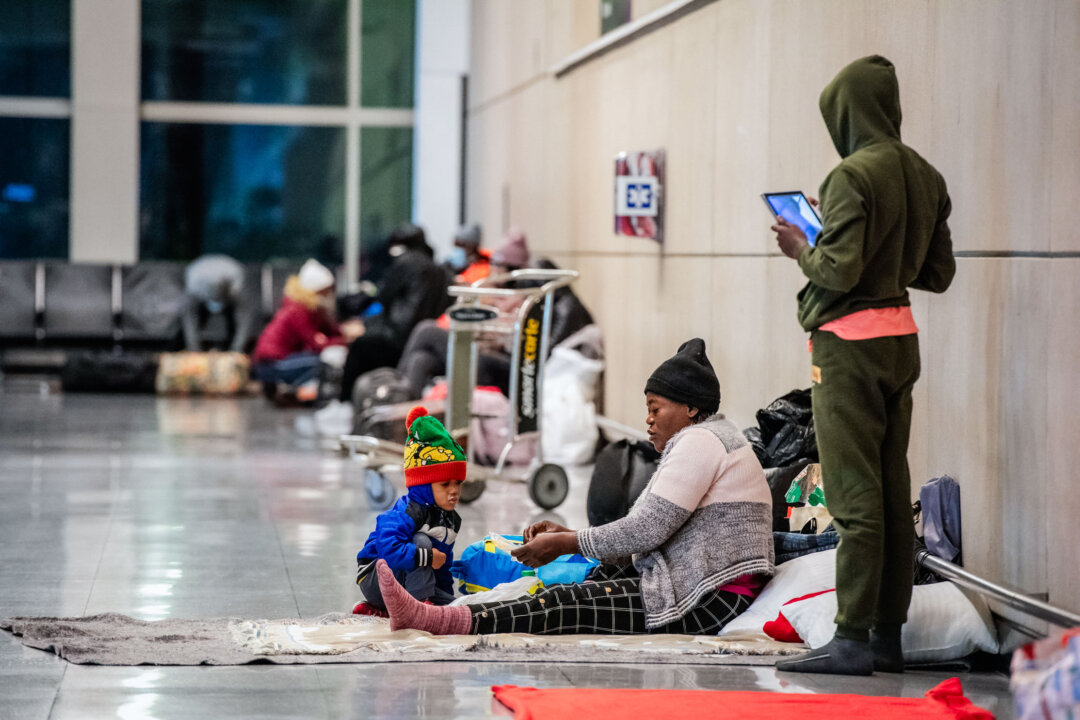So far, the program has allowed 531,000 foreign nationals into the country.
Republican members of a House Judiciary subcommittee criticized the lack of answers from the director of a controversial immigration parole program during a hearing on Dec. 4.
Rep. Tom McClintock (R-Calif.), chairman of the House Judiciary Subcommittee on Immigration Integrity, Security, and Enforcement, requested Ur Jaddou, director of U.S. Citizenship and Immigration Services (USCIS), to provide statistics for the Cuba, Haiti, Nicaragua, and Venezuela (CHNV) program, specifically the number of CHNV parolees whose authorization had expired and were still working.
“I don’t have those numbers with me,” Jaddou said when asked.
McClintock said the subcommittee requested information in October.
She confirmed that employment authorization was tied to the same period as parole, meaning once parole ended so did employment.
President-elect Donald Trump has vowed to carry out mass deportation of illegal immigrants once he returns to the White House in January for a second term.
Jaddou defended her organization and highlighted how the agency had been upgraded to make the immigration process more manageable.
“My goal every day has been to ensure USCIS is able to uphold America’s promise as a nation of welcome and possibility with fairness, integrity, and respect for all we serve,” she said.
The administration’s use of parole allows up to 30,000 CHNV nationals into the United States per month, enabling most to stay up to two years and receive work permits.
Under the CHNV parole program, immigrants who would otherwise be considered illegal are flown into the United States.
Republican lawmakers said the parole program was designed to consider parolees on a case-by-case basis, not as a tool of mass immigration.
A November staff report by the House Committee on the Judiciary and Subcommittee on Immigration Integrity, Security, and Enforcement stated that the Biden administration established pathways for illegal immigrants from those four countries to enter the United States, without Congressional authorization.
So far, the CHNV program has allowed 531,000 foreign nationals into the country.
In total, some 11 million illegal immigrants have entered over the past four years as part of the Biden administration’s open border policy that devolved into what critics call a national crisis.
Congressional subcommittee members also touched on fraud allegations in an internal report on the parole program.
Parolees are required to have a sponsor who provides financial support during their entire stay in the United States and must purchase their own plane tickets to qualify for the program.
Rep. Andy Biggs (R-Az.) questioned the director on the number of supporter applications that used the same social security number to sponsor foreign nationals, saying the report showed a single sponsor filled out paperwork for multiple foreign nationals.
Jaddou said in response, “I don’t have that report in front of me.”
The CHNV program was paused after an internal USCIS report found fraudulent information in thousands of application forms filed by sponsors.
The Federation for American Immigration Reform obtained the report.
Documents showed that the same Social Security numbers, addresses, and phone numbers were used hundreds of times in some cases.
Also, 100,948 forms were filled out by 3,218 serial sponsors, meaning sponsors whose numbers appeared on 20 or more forms.
In addition, 24 of the 1,000 most used sponsor Social Security numbers belonged to deceased people, and 100 physical addresses were used between 124 and 739 times on more than 19,000 forms.
Democrats on the subcommittee defended Jaddou, saying she inherited a broken system that was understaffed and credited her with turning the agency around.
Ranking member Rep. Pramila Jayapal (D-Wash.) alleged that Trump established policies during his first term to “make it even harder for anyone to apply for a legal pathway.”
Jayapal praised Jaddou for modernizing the agency and making it more efficient.
“Over the last two years, the agency has naturalized nearly 1.9 million people. Has worked to fully vet and admit the most refugees in 30 years, all the while dealing with increased strain and workload on its humanitarian portfolio,” Jayapal said.
Jayapal said that, according to the Congressional Budget Office, foreign nationals are expected to add $7 trillion to the economy over the next decade.
Jaddou said that by streamlining the process and hiring needed personnel, the department saw a decrease in its application backlog for the first time in a decade.
Democrats have said that mass illegal immigration is good for the economy because immigrants can fill jobs Americans don’t take and replenish a dwindling population due to low birth rates.

